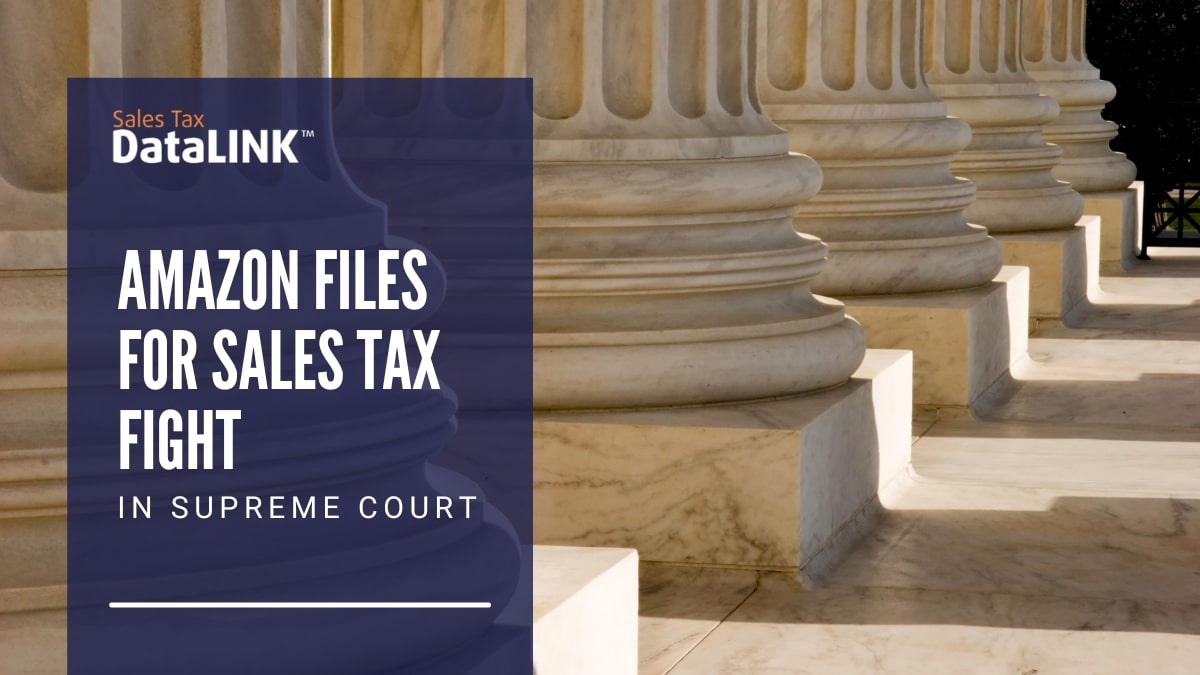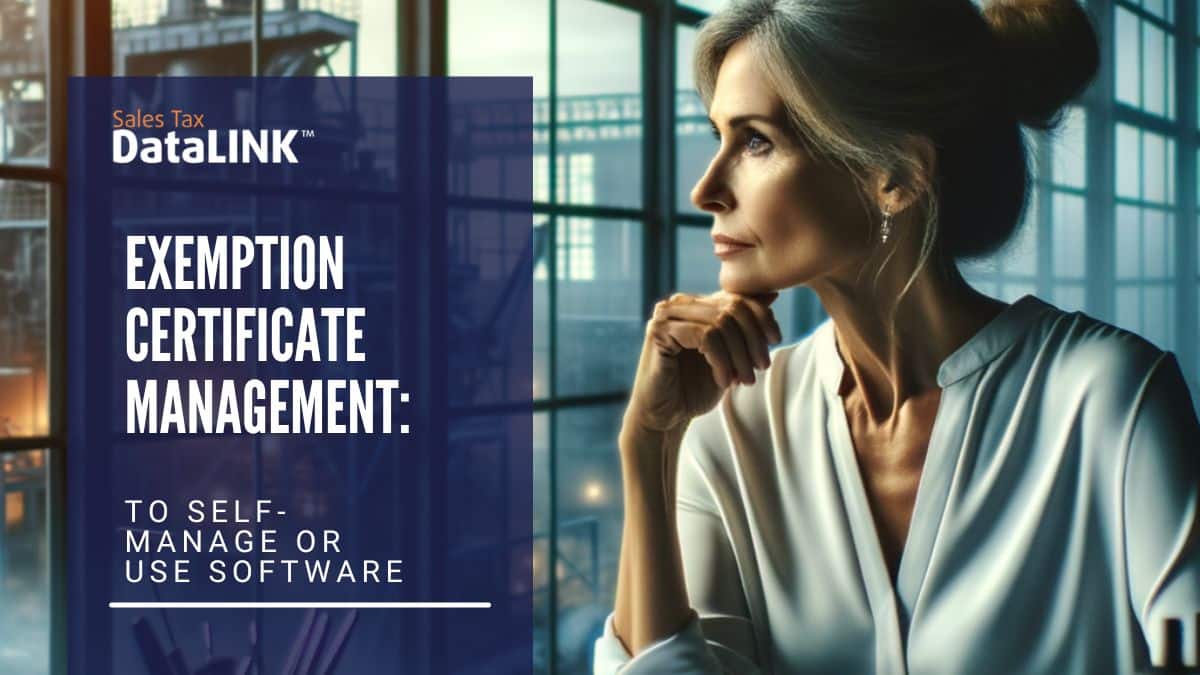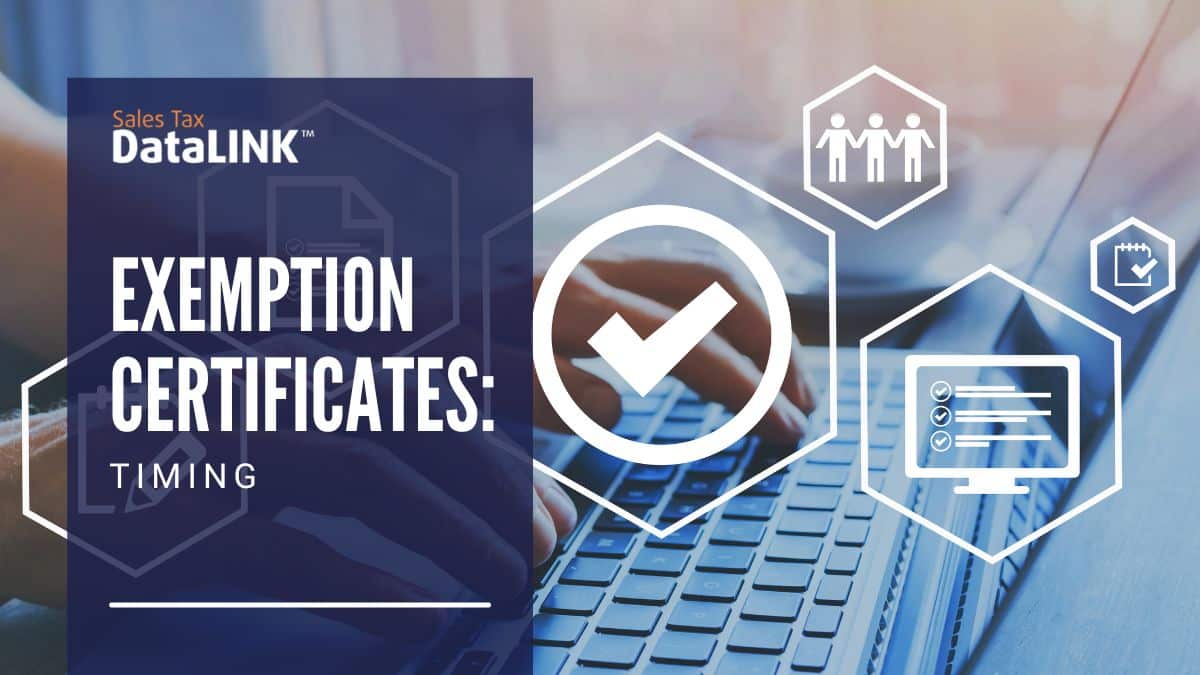Last Friday Amazon filed with the U.S. Supreme Court to decide whether New York State has the right to force Amazon to collect sales tax in the state due to affiliate marketing nexus rather than a physical nexus in the state. Back in March of this year, the highest court in New York upheld the 2008 law that has been long battled over by Amazon and New York. The U.S. Supreme Court will probably hear this case. But what exactly does this mean for the long-term battle over online sales tax? We predict that the U.S. Supreme Court will rule on this case with a long opinion.
Amazon has hired former U.S. Solicitor General Theodore B. Olson, so Amazon is bringing a big name who has a long and respected history of arguing before the U.S. Supreme Court. Most notably, he argued for Bush in the case of Bush v. Gore, which essentially determined the results of the 2000 Presidential Election by successfully ending a recount effort. Ted Olson’s history is tied up very tightly with the Supreme Court. He has in fact twice been considered for the position of a Justice. Due to his high profile and the importance of this case, we fully expect the Supreme Court to hear the case and issue an opinion on the merits of the case. Reports that Amazon is flip-flopping on the issue of e-commerce and sales tax aren’t exactly correct. Amazon has long been fighting with New York over the law that created nexus through Amazon’s affiliate advertising program, called “Amazon Associates.”
Five years into the battle, having lost in New York’s courts, the next place Amazon could challenge this law was in the U.S. Supreme Court. Amazon has publicly campaigned for internet sales tax but what they’re fighting for in this case is a clear, nationwide definition of nexus. In terms of business, Amazon wants to expand to better compete with brick-and-mortar retail locations through programs like grocery delivery, which means having more locations across the nation and collecting sales tax in more states. They are expanding their distribution centers, leading to a clear physical nexus in more states. As Amazon increases the states in which they have physical nexus, they’ll need to compete against what they once were—a sales tax-free online-only retailer.
At the same time, Amazon has had to shut down its affiliate networks in many states (Missouri is the latest) in order to avoid accepting a definition of nexus that includes factors other than physical nexus. As states attempt to collect taxes from Amazon on their own, a clear federal definition that would simplify their position is obviously a better bet for Amazon. It is therefore in their best interests to campaign for internet sales tax on their own terms. Since they can’t avoid sales tax collection entirely, they want the best deal for their business now and in the future, which means better nexus definitions. On Tuesday, one of our followers on Twitter sent us a series of tweets, finally asking: At the end of the day, if Amazon was really for collecting #internetsalestax, should it matter whether the law comes from Feds or from States? — TronconiSegarra CPAs (@TronconiSegarra). If a federal court in the form of the U.S. Supreme Court rules on this case, the opinion would supersede New York’s law and potentially define nexus nationwide.
For Amazon and other national online merchants, a single federal law would probably be easier to deal with than a patchwork of ever-changing state laws. Why did Amazon challenge this law in particular? Amazon filed immediately after the law was passed in 2008, well before any other states had a similar law on the books. The case had to work its way through New York before the U.S. Supreme Court would hear the case, although Amazon could have sued originally in Federal District Court, a lower federal court, it probably would have been sent back to a state court to be addressed.
Last week’s decision on Colorado’s law serves as a tidy example of a U.S. Federal Court sending an issue back to the state. In terms of other legislation in Congress at this time in the form of the MFA, a case hearing could bring a lot more public attention to issues surrounding sales tax and interstate commerce laws. Heightened public knowledge and opinions will change the course of the MFA so be sure to watch this case closely. Sign up for our newsletter to stay informed about sales tax updates and what changes might affect your business.




